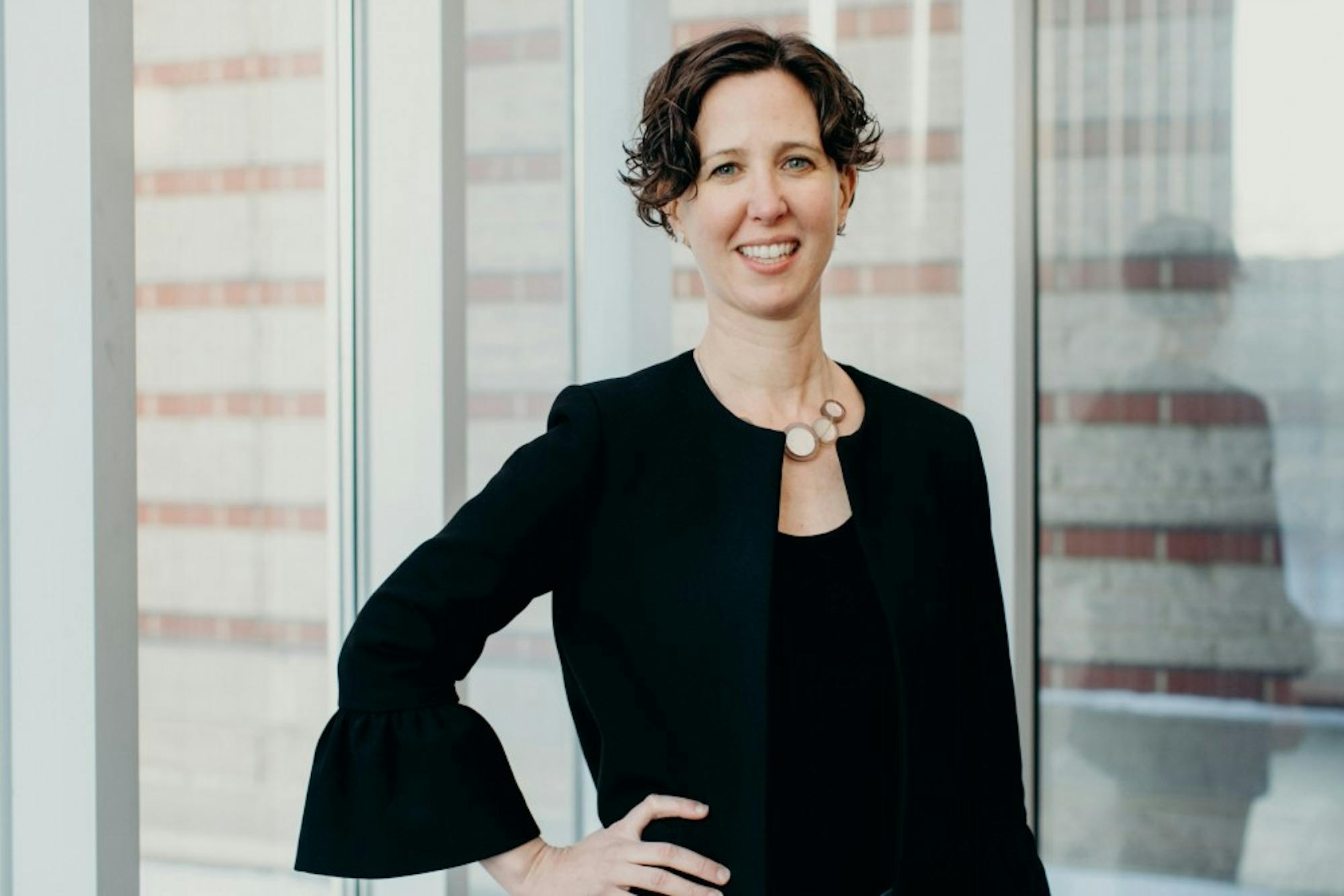Coming to Dartmouth as the next step in a career that has spanned the private sector, government and academia, Alexis Abramson has been named the next dean of the Thayer School of Engineering. Abramson will assume the post on June 17. She replaces interim dean of Thayer Laura Ray, who took over the position when Joseph Helble assumed his current role as College provost.
Abramson said she is excited to continue Thayer’s efforts to expand the engineering school’s presence in several ways, including “raising the profile and external visibility” of the school, growing and diversifying the faculty and promoting cross-campus and off-campus interdisciplinary collaboration.
“Given her track record and her strength as a leader and communicator, I am tremendously excited about her potential to be even more successful in diversifying the engineering student body and the faculty and staff as well,” Helble said.
Helble, the former dean of Thayer for over 13 years, said that he thinks that Abramson will be an “inspiring leader,” and also cited Abramson’s experience across various industries as a factor that made her stand out.
Helble said that Abramson’s focus on energy-related engineering and research was additionally valuable in identifying her for the position, as that is one of Thayer’s two largest areas of research and education.
In addition to her track record as an academic at Case Western Reserve University and co-director of the university’s Great Lakes Energy Institute, Abramson worked in the Obama administration as chief scientist and manager of the Emerging Technologies Team in the U.S. Department of Energy’s Building Technologies Office. She has also worked as a technical adviser for Breakthrough Energy Ventures, a $1 billion innovation fund started by Bill Gates to fight anthropogenic climate change.
“It brings a diversity of viewpoints to the position compared to someone who might have spent their entire life in academia,” engineering professor Eric Fossum said. “Not that [working solely in academia] is a bad thing, but it was certainly something we liked about future dean Abramson.”
Helble added that Abramson’s valuable experience working in various settings to help groups of people collaborate — from establishing research programs at Case Western to helping individuals and groups secure funding from her position at the Department of Energy — was an important skill for the dean to bring with her.
“Good academic leaders don’t issue edicts — they build consensus,” Helble said. “She is clearly a thoughtful communicator and listener, and she’s been very successful at building consensus.”
Abramson said that two primary factors drew her to the College and Thayer specifically: the liberal arts education and the interdisciplinary approach to engineering research and academic engagement.
She added that her own undergraduate liberal arts experience at Tufts University influenced her love for a multifaceted educational approach, adding that although she was a mechanical engineer, she “took as many humanities and social science courses as [she] could.”
Thayer’s increasingly prominent role in engineering education was an additional draw to the institution for Abramson.
“Thayer is very well positioned to be at the forefront of the revolution of engineering education at the university level moving forward,” Abramson said. “The future engineer will have to find a way to learn about not just the human-made world, the engineered world, but integrate knowledge about human experience into that, and that is really the way to have significant impact moving forward.”
Abramson noted that Thayer already does this quite well — “the integration of the human-made world and the human experience”— which made the school very attractive to her.
Helble said that he and College President Phil Hanlon selected Abramson from a shortlist of finalist candidates, which was put together by a search committee chaired by Fossum and included several professors, several alumni and one student from Thayer. The committee was assembled by former interim provost David Kotz ’86, with advisement from then-dean Helble soon after Helble’s appointment to provost.
“The viewpoints represented different stakeholder groups in Thayer, whether it be students or faculty or alums, and these are all important voices to include in identifying the best possible candidate,” Fossum said.
As the second woman in Thayer’s 150-year history to lead the school, Abramson noted that it has sometimes been difficult being a woman in a field traditionally dominated by men. However, she said that some of these hardships, including having been mistaken for a secretary, have helped her become a better person and leader.
“I’ve definitely had to take a few extra steps to demonstrate who I am and to demonstrate my capabilities,” Abramson said. “In the long run, that’s been a benefit, not a burden, because it’s helped me be more outspoken and introspective, as well as to better evaluate who I am and what I need to work on to grow.”




